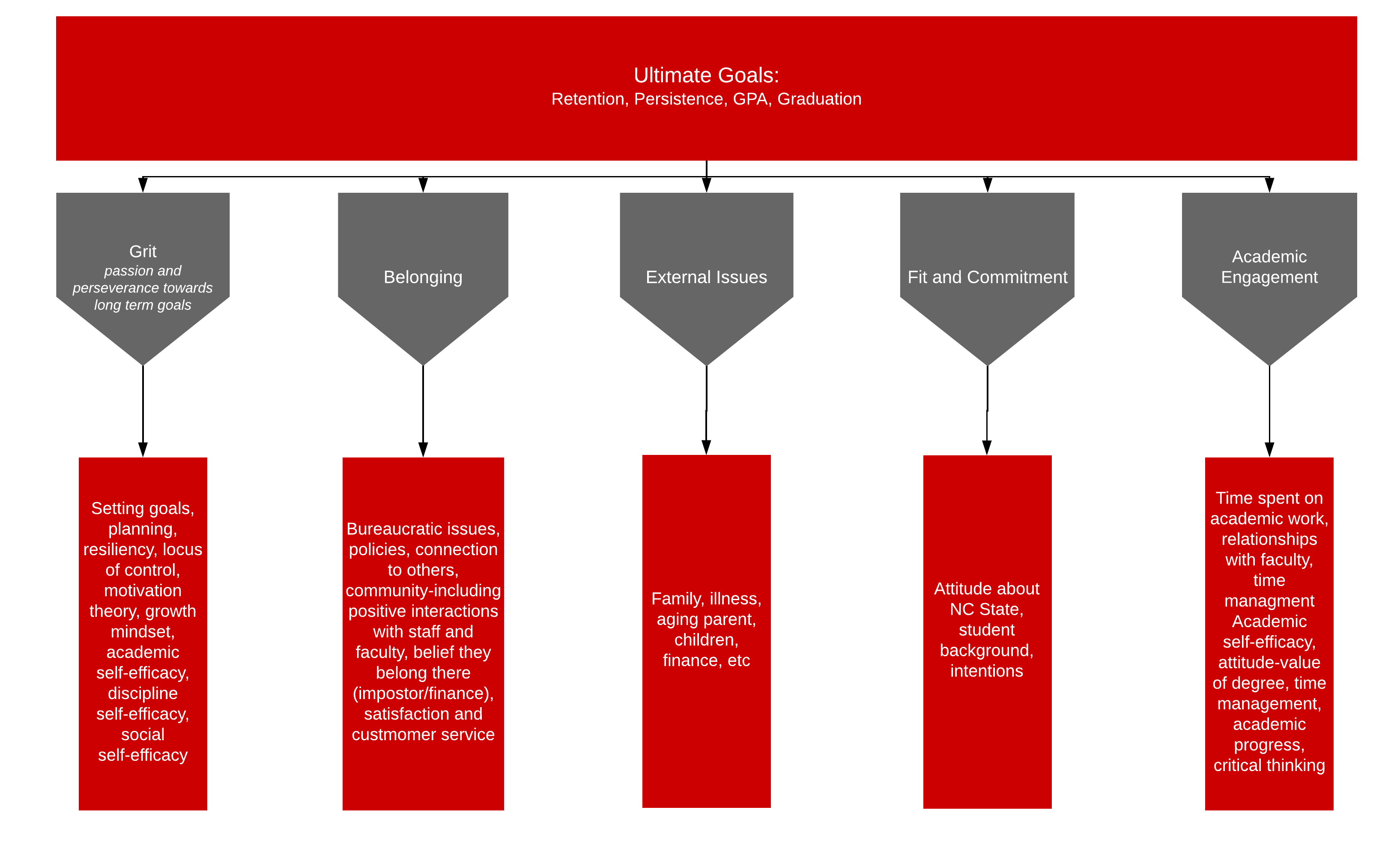About Student Success Assessment
Overview
Student Success Assessment (SSA) is a division-wide initiative to identify, measure, and improve the underlying variables that impact student success at NC State. A team of division staff, faculty, and students overseen by DASA Assessment is identified each year to explore a success variable in three stages: Literature Review, Data Collection, and Implementation. Student Success Assessment began as “Retention Foundations Assessment” in 2017-2018. It was renamed to Student Success Assessment in 2022.

Scope and Stages
Student Success Assessment simultaneously assesses multiple success variables of interest at NC State in multi-year cycles. Teams of division staff, faculty, and students overseen by DASA Assessment will work with each success variable in three stages: Review, Collection, and Implementation. Each stage in the process spans one academic year and is comprised of a unique team of interested individuals within the division. Each team accomplishes the goals of its stage with the members’ own collective judgment and expertise on a timeline given by DASA Assessment. The team then passes on its progress to the group taking on the next stage for that success variable. The responsibilities of the three stages are as follows:
Literature Review
The Review Team engages in literature review of current research for their variable of interest and narrows the focus as needed. The team then examines existing data on the topic at NC State and identifies remaining data collection needs for the next stage.
Data Collection
In the Collection stage, data on the variable of interest is collected within NC State’s student population based on the previous team’s recommendations. DASA Assessment’s Pack Assessment Ambassadors lead in the collection of qualitative data by conducting focus groups with undergraduates. All quantitative and qualitative data, along with Ambassador recommendations, are compiled and handed to the final team.
Implementation
The Implementation Team reviews the key data points and shares them with DASA units. Team members work with units to brainstorm ways they can use findings to make small but impactful adjustments to existing unit-level programs and practices. Units then share back with DASA Assessment what changes they have made to improve the underlying success variable for NC State students.